We can't find the internet
Attempting to reconnect
Something went wrong!
Hang in there while we get back on track
Ecto

Elixir's dynamic and functional nature, along with the Ecto library, makes it an ideal choice for building a variety of applications requiring database interactions. Ecto provides a structured schema and query language that facilitates the seamless integration of database operations within Elixir applications. For instance, whether it's experimenting with geocoding features or handling complex database migrations in a production environment, Ecto offers the tools and flexibility needed for developers to implement robust solutions to data-related challenges. Its compatibility with databases, combined with Phoenix and LiveView, allows the creation of modern web applications that rival conventional JavaScript frameworks.
Observers of the BEAM runtime have praised Elixir's tools for monitoring and debugging, highlighting their effectiveness in maintaining application health and performance. Advanced features such as managing resource authorization or implementing multi-tenant environments also underline the capabilities of Elixir and Ecto to handle sophisticated requirements. Specifically, developers have leveraged Ecto to run large-scale, zero-downtime migrations, indicating how vital precise management and low-risk strategies are for such operations.
When it comes to testing, Elixer presents robust options. Techniques for testing external databases or simulating user authentication and authorization in multi-tenancy setups are just a few examples of how Ecto's flexibility aids developers. Adding to this, the practical deployment experiences shared for handling large data volumes with system resources such as SQLite and leveraging Elixir's efficiency, reinforce the language's standing in web and database-related tasks. Moreover, the ability to interleave Elixir's unique features like macros and telemetry for metaprogramming and observability respectively, only adds to its appeal among software developers.
Apart from the backend utility, Elixir, with libraries such as LiveView and Nerves, has also ventured into the realm of real-time applications and energy management platforms. The resilience and fault tolerance inherent in its design have been key in distributing workloads and managing infrastructure effectively. The educational progress in Elixir is noteworthy, with new resources and community insights constantly emerging to support both beginner and experienced developers alike. The discussions around Elixir at conferences and in articles provide a glimpse into the vibrant ecosystem that continues to evolve and broaden the applicability of this modern language across various domains.

Integration of MyXQL with Ecto for MySQL Support
Wojtek Mach explores the integration of a MySQL adapter with Ecto, discussing essential steps and challenges involved.

Building a Custom Analytics System with Ecto and Elixir
José Valim outlines the development of a custom analytics system for the Dashbit website using Ecto upserts, Elixir processes, and registries.

Managing Automatic and Manual Ecto Migrations
Wojtek Mach discusses the built-in support for database migrations in Ecto and addresses challenges when deploying schema and data migrations. The author presents solutions such as automatic and manual migrations and the use of multiple migration directories for better management.
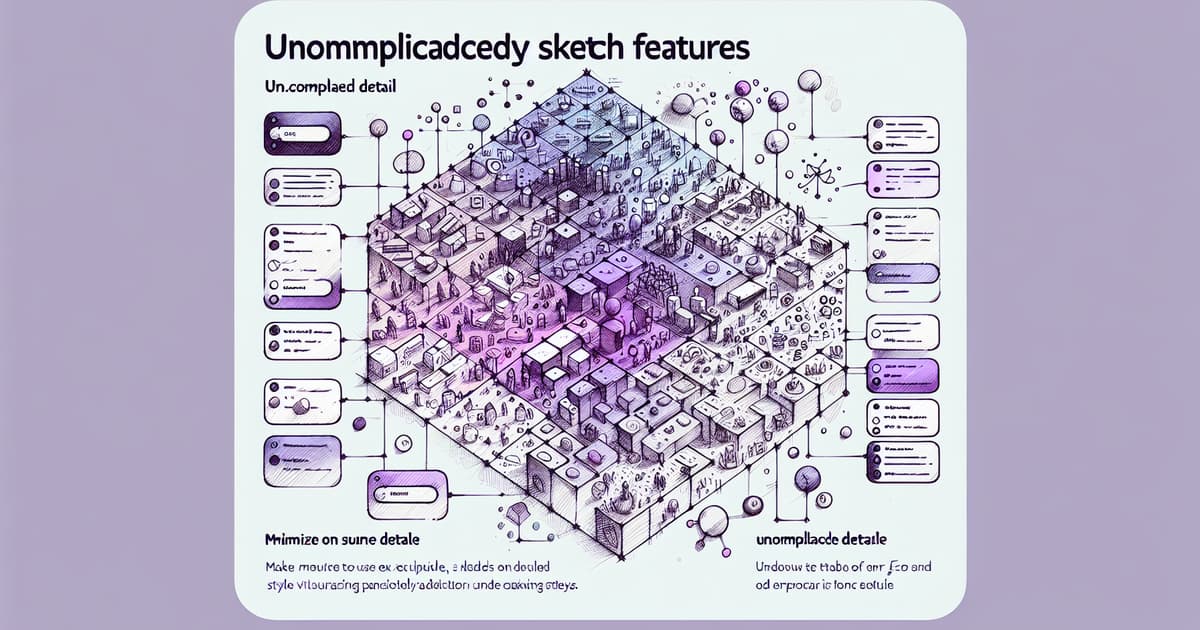
Overview of Upcoming Features in Ecto 3.5
Discussion with Mike Binns on the new features in Ecto 3.5 including Ecto.Enum, ParameterizedType, and 'redact' option.
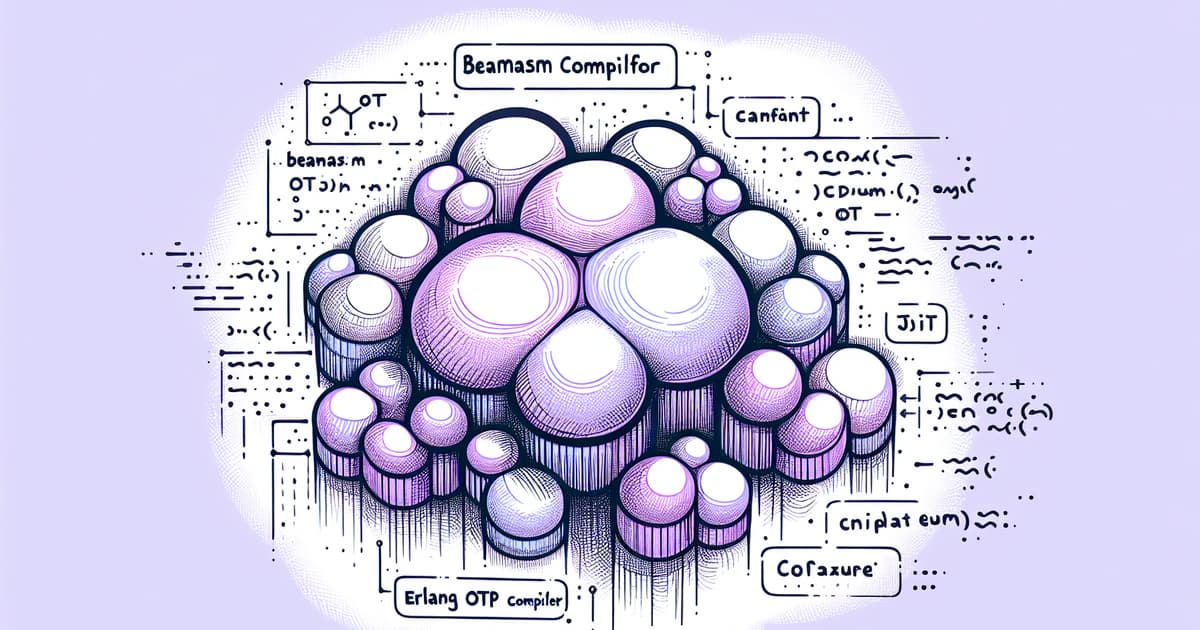
Introduction to BeamAsm JIT Compiler for Erlang OTP and Elixir
Mark Ericksen, David Bernheisel, and Cade Ward host Lukas Larsson and John Högberg to discuss the BeamAsm project and its implications for the Erlang OTP and Elixir ecosystems.

Insightful Discussion on Ecto and jason Libraries with Michał Muskała
Michał Muskała joins the podcast to discuss his work on the Ecto and jason libraries, sharing insights into their development and his experiences with open source.

Interview with Eric Oestrich about ExVenture and Elixir Internals
Eric Oestrich discusses ExVenture, an Elixir MUD framework, and delves into Elixir internals.

Exploring Ecto Associations and More
Mark Ericksen: In this episode, the discussion revolves around Ecto's 'association defaults' feature, learning about its application, use cases, and advantages for multi-tenancy ID issues. The episode also explores Slab, Single Table Inheritance designs, and the practice of wrapping the Repo module.

Understanding Impacts of Expiring Root Certificates on Elixir and Erlang Projects
In Episode 64, Bram Verburg discusses the implications of an expiring root certificate on Elixir and Erlang projects, providing insights on how to manage and update affected systems.

Podcast episode discussing safe practices for Ecto migrations
David Bernheisel discusses his Safe Ecto Migrations guide, covering important strategies for handling database migrations in production environments.

Exploring the Waffle Library with Boris Kuznetsov
Boris Kuznetsov discusses the Waffle library and its functionalities for attaching and processing media files in Ecto records.

Leveraging Ecto custom types for richer domain structures
Primitive obsession makes our codebases harder to maintain. Thankfully, Ecto custom types can help transform primitives into domain structures more quickly. Explore how to define and use Ecto custom types to manage data efficiently in Elixir applications.

Short Elixir and Phoenix Tips and Tutorials Collection
German Velasco introduces a new website, Elixir Streams, offering consolidated short video tips and tutorials for Elixir and Phoenix.

Insightful Discussion on Testing in Elixir
Authors Jeffrey Matthias and Andrea Leopardi explore the intricacies of testing in Elixir, including methods, challenges, and best practices highlighted in their book Testing Elixir.

Anonymizing User Data with the `ecto_anon` Library
Clément Quaresma discusses the `ecto_anon` library for anonymizing user data to honor GDPR and the right to be forgotten.

Discussion on Ash Framework and its Benefits
In this episode, the creator of the Ash Framework, Zach Daniel, discusses how the framework models resources above Ecto to make it more expressive while supporting LiveView, REST, and GraphQL interfaces.

Exploring the Nebulex Caching Library
Mark Ericksen and David Bernheisel discuss the Nebulex caching library with its creator Carlos Bolaños. Nebulex offers unique approaches to caching, such as a decorator pattern and multiple adapter support.

Discussing Ecto in Livebook with Lively Project from Spawnfest
Hosts Mark Ericksen, David Bernheisel, and Cade Ward talk to Filipe Cabaço and Joel Carlbark about 'Lively,' their entry in Spawnfest, which integrates Ecto with Livebook.

Discussion on Bonfire Networks and the Fediverse
Episode 136 of the Thinking Elixir Podcast explores federated networks with guest Mayel de Boniol, creator of Bonfire Networks, and covers Elixir Community News.

Exploring LiveBook and Various Elixir Projects in Episode 29
Beam Radio presented Episode 29 with discussions about LiveBook and other interesting Elixir projects. The episode also promoted the launch of new books and the release of various libraries.

Guide On Using Ecto.Enum and Ecto.Type in Elixir
An in-depth look at utilizing Ecto.Enum and Ecto.Type in Elixir applications to manage data effectively.

Introducing Polo: An Open-Source Elixir & Phoenix LiveView Powered REST Client for Browsers
Marcelo discusses the features and development of Polo, an open-source REST client that runs in browsers, powered by Elixir and Phoenix LiveView.

Discussion on Oban with Bowery Farming's Engineers
Ashley Smith and Kenneth Moy from Bowery Farming discuss their experiences with Oban, a job processing library in Elixir, and its applications in their work.

Understanding Ecto Queries with Mark Ericksen and David Bernheisel
In this episode, Mark Ericksen and David Bernheisel from the Thinking Elixir Podcast delve into the nuances of Ecto Queries.

Updates and Announcements from the Elixir Community
Mark Ericksen, Cade Ward, and David Bernheisel discuss updates in the Elixir community, including Livebook's launch week, Ecto 3.10.0 improvements, a new JSONSchema compiler Exonerate, and other notable projects.

Speeding Up Queries with Ecto and Postgres
Filipe Fróes discusses optimizing query performance using Ecto and Postgres at ElixirConf EU 2024.

Solving Issues with Fetching User Organizations in Phoenix Framework Using Ecto
Zizizizz is seeking help with Ecto queries, specifically for fetching a user's associated organizations in Phoenix Framework using phx.gen.auth. They provide detailed schema definitions and analysis of queries used, along with encountered errors.

Announcing Supabase Potion: A Complete Elixir Client for Supabase Services
zoedsoupe introduces Supabase Potion, a comprehensive Elixir client library for integrating Supabase services including Auth, Storage, and PostgREST into Elixir applications.

Exploring Data Filtering Options in Elixir Phoenix
tkitg: A RoR developer transitioning to Elixir Phoenix is seeking advice on Ecto data filtering options, mentioning a few potential packages like `rummage_ecto`, `turbo_ecto`, and `flop`.

Implementing Least Privilege in Elixir with Ecto
Onorio Catenacci discusses the principle of Least Privilege, and how to implement it in an Elixir application using the Ecto library.

Exploring Ash as a Low-Code Solution in Elixir
In lukasender's discussion, Ash is posited as a potential dark horse in the world of low-code development tools by effectively utilizing Elixir's macro system and building upon foundations like Ecto and Absinthe.

Exploring Ash Framework: A Low-Code Solution Powered by Elixir
Lukas Ender explores Ash, a powerful framework for Elixir that aims to reduce boilerplate code and speed up development, focusing on its use as a low-code tool that leverages Elixir's macro system.
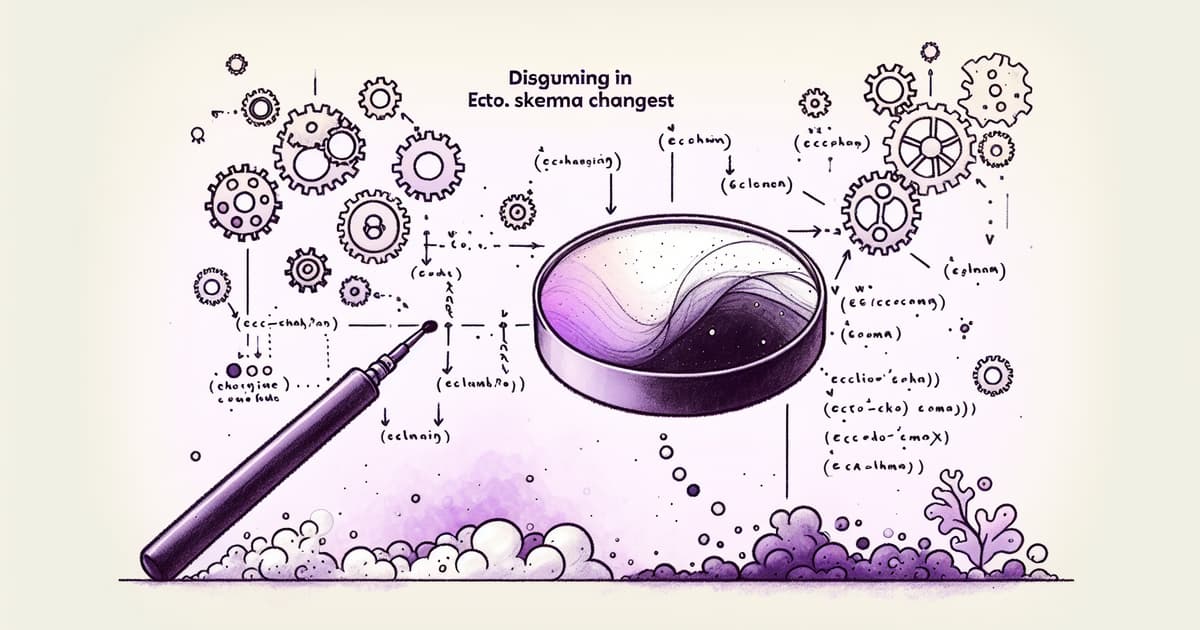
Resolving LSP Diagnostic on Elixir Ecto.Schema Changeset Function
TheWholeThing discusses an issue with Language Server Protocol (LSP) diagnostics in Elixir when working with Ecto.Schema.

Troubleshooting Ecto Associations and Insert Query
George Summers is experiencing an issue with settings up Ecto associations in an Elixir project involving a SQLite database. They are trying to figure out why an unexpected error occurs when inserting new entries into a many-to-many relation.

Creating a Custom Query Language in Elixir with NimbleParsec and Ecto
R. Binetti's talk focuses on building a domain-specific query language (DSL) using Elixir, NimbleParsec, and Ecto to perform complex filtering on API resources.

Managing Dynamic Forms with Elixir and Phoenix LiveView
Benjamin Rosas explains how to handle dynamic lists of embedded item inputs in web forms using Phoenix LiveView features without JavaScript.
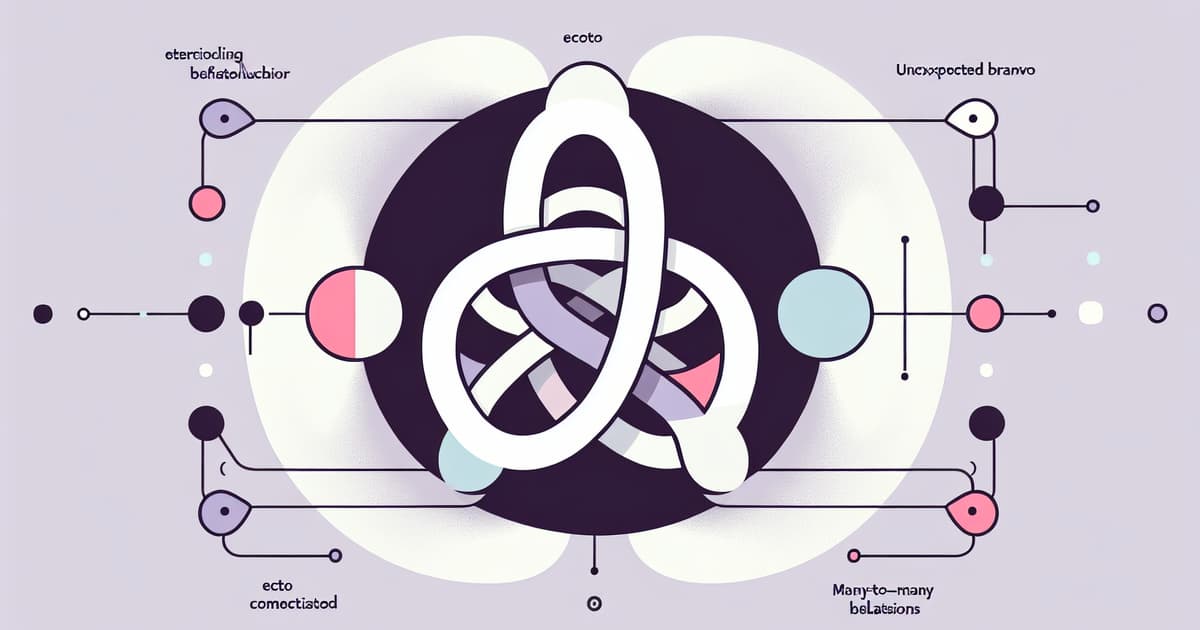
Ecto put_assoc() Unexpected Behavior with many_to_many Relationships
In the post by blah1998z, the author describes an issue with the `put_assoc()` function in Ecto, particularly with many_to_many relationships, where it is unexpectedly deleting associated records on update even when the records are already linked.

Setting Up PGroonga for Full-Text Search in Elixir Projects
This blog post outlines the process of installing PGroonga, enabling the full-text search extension in PostgreSQL, and demonstrates its integration into an Elixir project.

Building Multitenant Applications with Phoenix and Ecto
Eli Kroumova's talk at ElixirConf EU 2023 focused on creating multitenant web applications using Phoenix and Ecto, where a single application instance serves multiple clients with isolated data in a shared database architecture.

Understanding Ecto in Elixir for Effective Data Access
Brad Urani, a Principal Software Engineer at Procore Technologies, explores Ecto, a domain-specific language for Elixir used to interact with databases functionally and relationally.

Ecto Migrations and Associations in Elixir Projects
This piece covers the essentials of working with Ecto migrations and handling data associations in Elixir, guiding through creating migrations, adding indexes, dealing with associations, and generating schemas for an Elixir project.
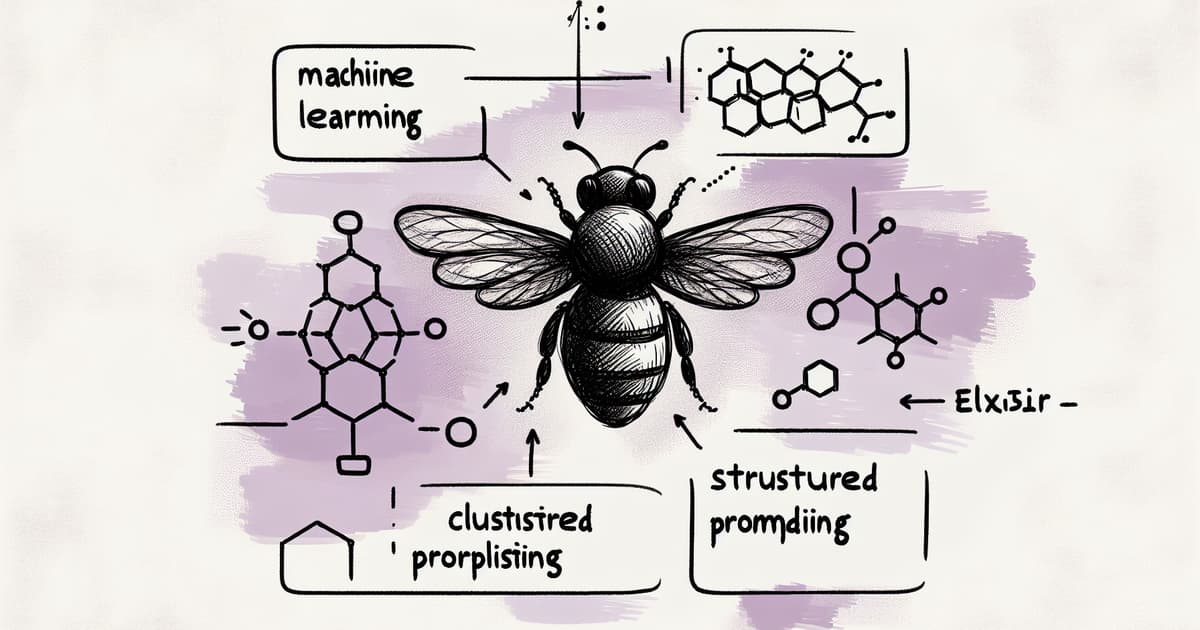
Exploring Machine Learning in Elixir through Clustering and Structured Prompting with Bumblebee
Sean Moriarity discusses the potential of Machine Learning with Elixir, emphasizing the new applications enabled by structured prompting and clustering.

Implementing OpenTelemetry in Elixir Applications
The author discusses their experience incorporating OpenTelemetry into a LiveView Elixir application designed to parse FIT files for personal analytics relating to file processing times and failure rates.
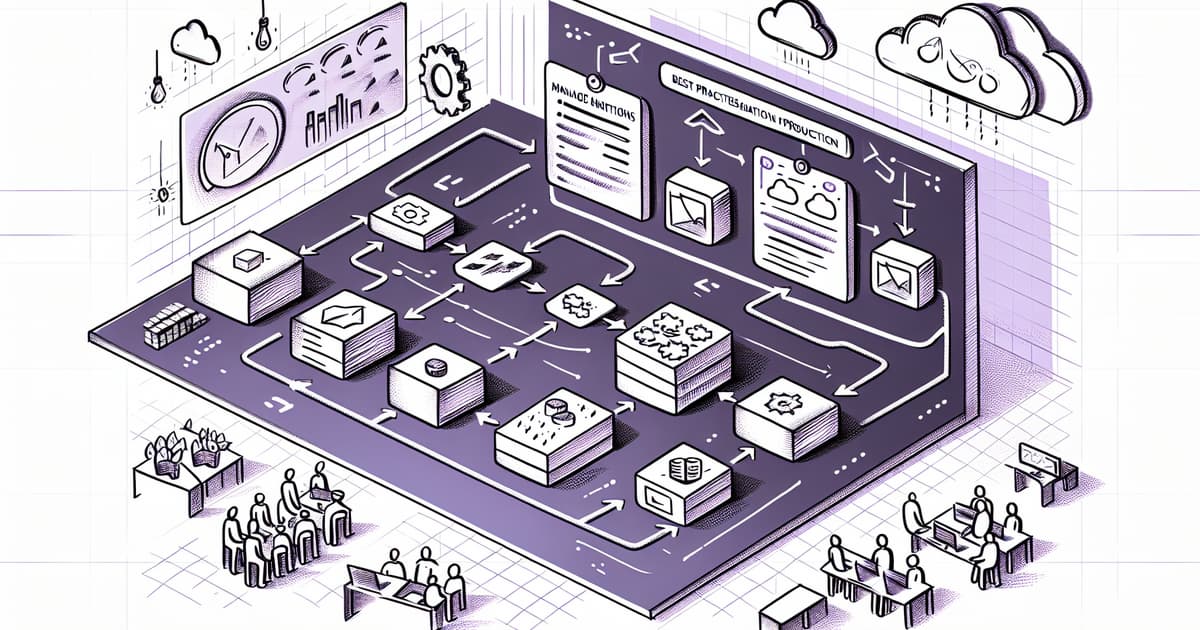
Best Practices for Handling Ecto Migrations in Production
David Bernheisel provides an in-depth look at the challenges and strategies for handling database migrations in Elixir's Ecto while in a production environment.
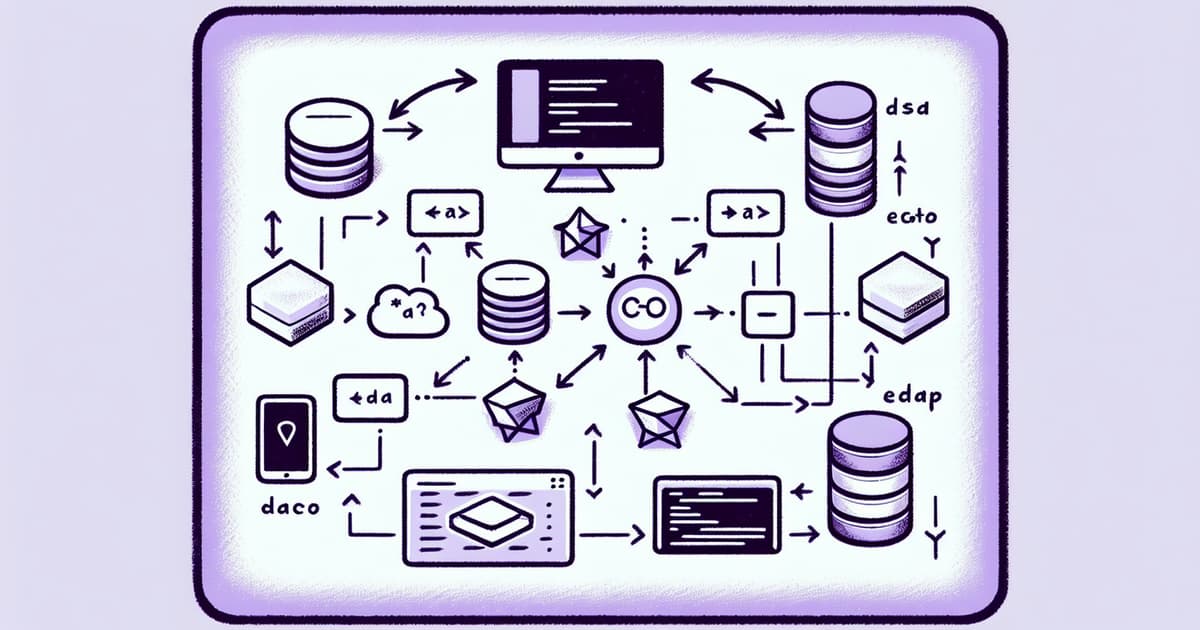
Implementing an EAV Schema with Ecto in Elixir
NerdyByDesign discusses challenges faced while trying to implement an Entity-Attribute-Value (EAV) schema in an Elixir project using Ecto.

Geocoding Techniques in Elixir and Phoenix LiveView
Joshua Plicque shares insights on building and deploying geocoding features in an Elixir application, tackling challenges, and providing a structured engineering approach to software development.

Integration of AI and Home Automation with Elixir
Sean Moriarity explores integrating a home automation system with AI using Elixir as the software framework.

Overcoming Global State in Tests with Localized State for Async Elixir ExUnit Tests
JB Steadman discusses strategies to avoid using `async: false` in ExUnit tests by localizing global state, allowing tests to run asynchronously and independently.

How to Deploy a Phoenix App with Clustering on Nomad
Theron describes the process of running a Phoenix application on Nomad with a focus on setting up rolling deployments and ensuring redundancy.

Dynamic Ecto Query Building Using Composite Library
Artur Plysiuk explores a different approach to writing dynamic queries in Ecto using the Composite library, suggesting improved code organization and query composition.
© HashMerge 2026